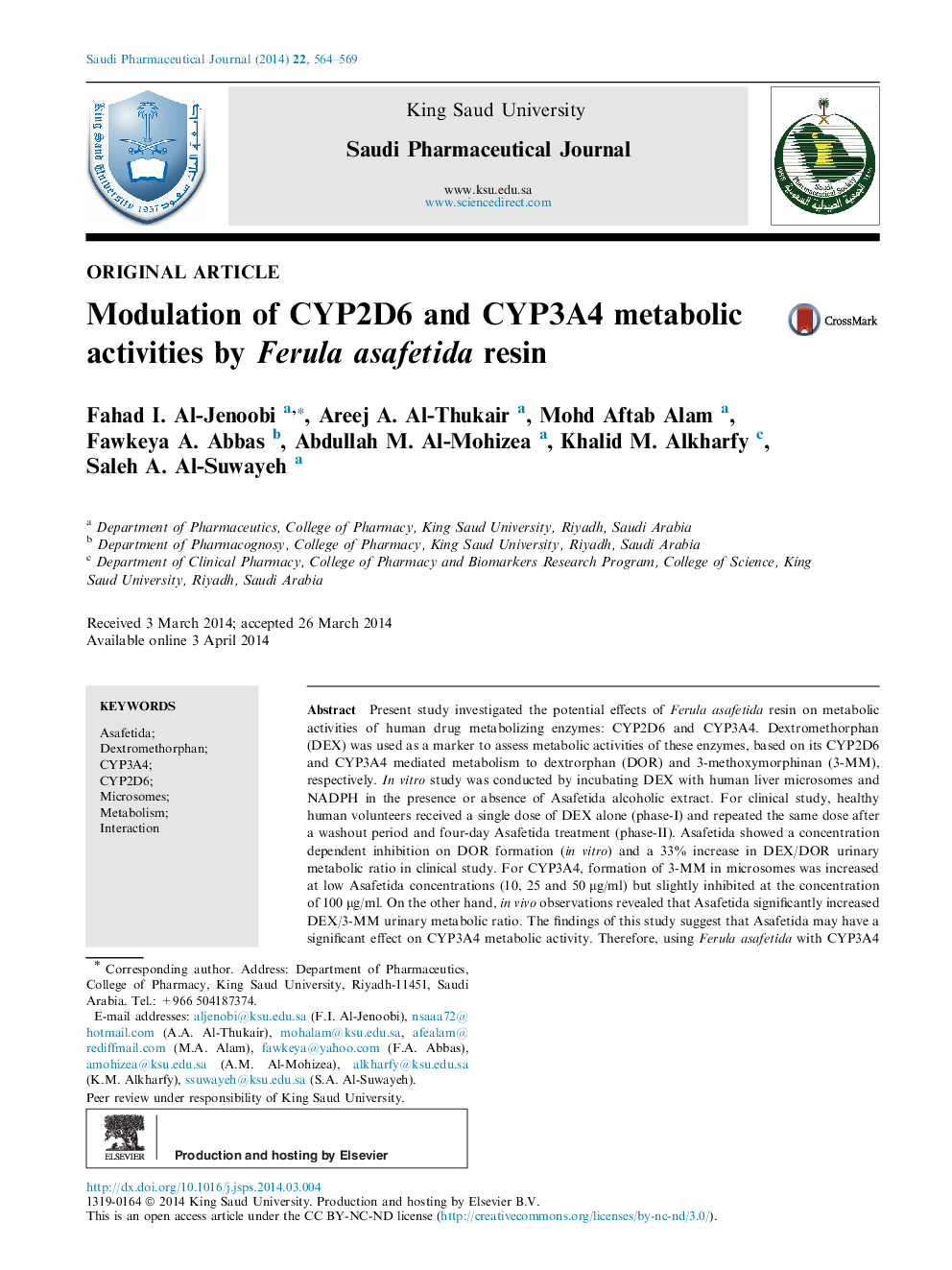| Article ID | Journal | Published Year | Pages | File Type |
|---|---|---|---|---|
| 2509539 | Saudi Pharmaceutical Journal | 2014 | 6 Pages |
Present study investigated the potential effects of Ferula asafetida resin on metabolic activities of human drug metabolizing enzymes: CYP2D6 and CYP3A4. Dextromethorphan (DEX) was used as a marker to assess metabolic activities of these enzymes, based on its CYP2D6 and CYP3A4 mediated metabolism to dextrorphan (DOR) and 3-methoxymorphinan (3-MM), respectively. In vitro study was conducted by incubating DEX with human liver microsomes and NADPH in the presence or absence of Asafetida alcoholic extract. For clinical study, healthy human volunteers received a single dose of DEX alone (phase-I) and repeated the same dose after a washout period and four-day Asafetida treatment (phase-II). Asafetida showed a concentration dependent inhibition on DOR formation (in vitro) and a 33% increase in DEX/DOR urinary metabolic ratio in clinical study. For CYP3A4, formation of 3-MM in microsomes was increased at low Asafetida concentrations (10, 25 and 50 μg/ml) but slightly inhibited at the concentration of 100 μg/ml. On the other hand, in vivo observations revealed that Asafetida significantly increased DEX/3-MM urinary metabolic ratio. The findings of this study suggest that Asafetida may have a significant effect on CYP3A4 metabolic activity. Therefore, using Ferula asafetida with CYP3A4 drug substrates should be cautioned especially those with narrow therapeutic index such as cyclosporine, tacrolimus and carbamazepine.
